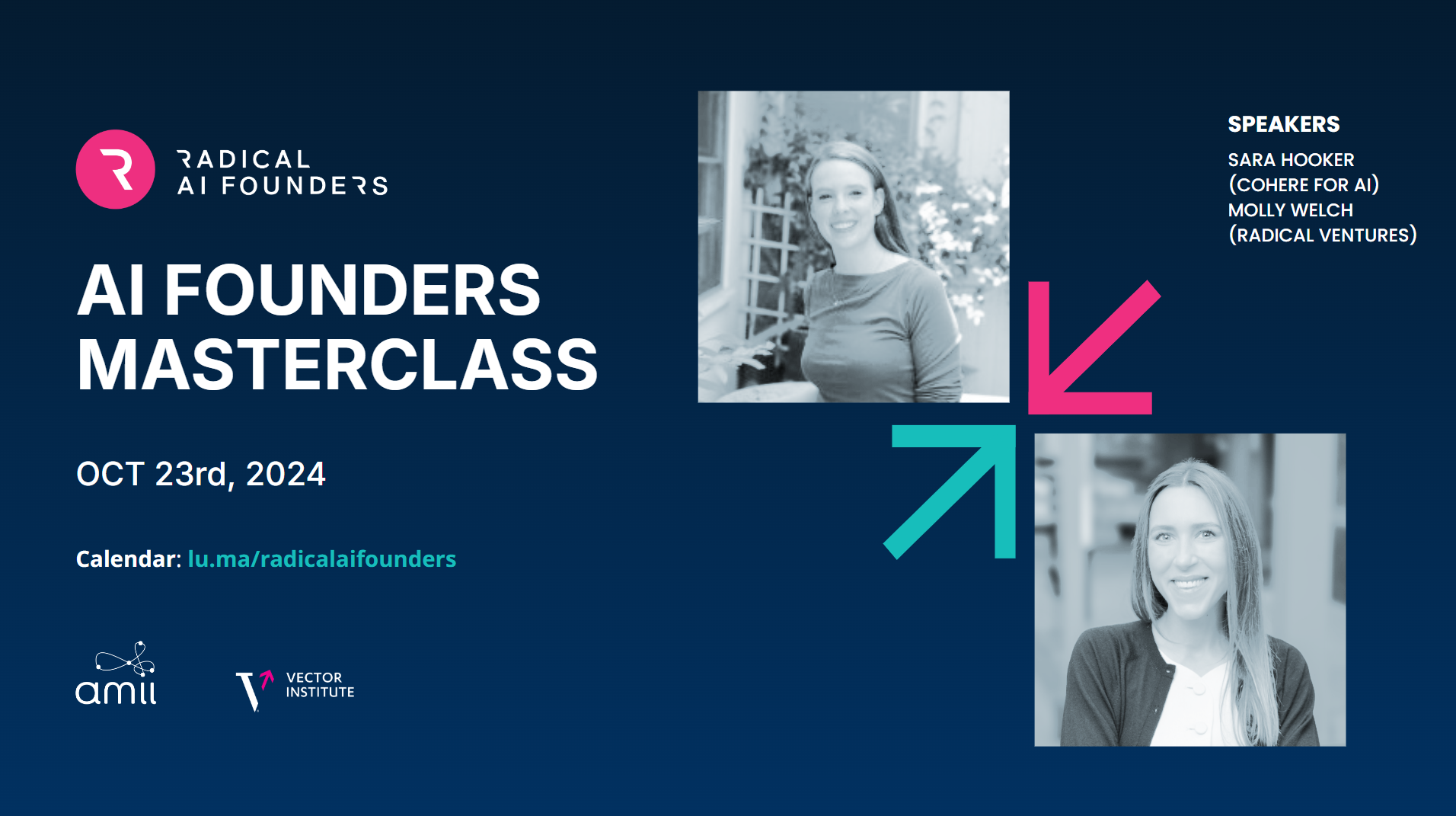This week we bring you a Radical Ventures partner Rob Toews’ TedTalk from the Ted AI conference held in San Francisco. Rob discusses how one company in Taiwan, TSMC, manufactures nearly the entire’s world’s supply of advanced semiconductor chips — a crucial technology that powers everything from phones to electric vehicles to next-generation artificial intelligence. As Rob puts it: “The world’s most important advanced technology is nearly all produced in a single facility.”
AI News This Week
-
Why the US needs a moonshot mentality for AI — Led by the public sector (Wall Street Journal)
Fei-Fei Li, a Stanford AI professor and Scientific Partner at Radical Ventures, and John Etchemendy, former Stanford provost, both co-directors of The Stanford Institute for Human-Centered Artificial Intelligence (HAI), highlight the critical need for Congressional oversight in AI’s development and its societal impact. The 2023 Stanford AI Index reveals a stark contrast: 32 significant machine learning models were developed by industry last year, while academia only produced 3. While legislative measures like the Create AI Act and President Biden’s executive order represent progress, Li and Etchemendy stress the need for further action. They advocate for substantial US investment in public sector AI infrastructure and talent to ensure responsible and balanced AI development that is aligned with American values and leadership in innovation.
-
Geoffrey Hinton: Large Language Models in Medicine. They Understand and Have Empathy (Eric Topol: Ground Truths)
A feature conversation between physician-scientist and author Dr. Eric Topol and Turing Award winner and AI godfather (and close friend of Radical), Geoffrey Hinton. The discussion explores how AI is revolutionizing healthcare, how large language models understand and may exhibit empathy, and the importance of addressing AI safety issues. For those who want to dive deeper, you can listen to our conversation with Eric Topol from the Radical Talks podcast here, and our discussion with Geoffrey Hinton and Fei-Fei Li here.
-
How AI assistants are already changing the way code gets made (MIT Technology Review)
AI coding tools and now assistants are revolutionizing programming by increasing productivity and broadening access to coding. These tools simplify complex coding tasks, allowing programmers to focus on more creative aspects of software development. This shift highlights the value of fundamental programming knowledge in an evolving technological landscape.
-
The end-of-year AI rush (The Verge)
This week was marked by two significant pieces of AI news as Google introduced Gemini, a new AI model, and Apple released its MLX framework and model libraries designed to run on its chips (bringing generative AI apps to MacBooks). These announcements come at the end of an extraordinary year of AI advancements including innovations in multimodal AI technologies and breakthroughs in transforming biology and related scientific research.
-
DNA nanobots can exponentially self-replicate (New Scientist)
Researchers at New York University have created nanoscale DNA “robots” that can self-replicate, potentially revolutionizing drug manufacturing within the body. These tiny machines, about 100 nanometres across, use their own structure to replicate DNA strands. This groundbreaking technology could lead to in-body production of enzymes or insulin, offering new treatments for genetic diseases and type 2 diabetes. Currently limited to laboratory settings, these nanobots require specific conditions for replication, ensuring safety from uncontrolled replication scenarios.
Radical Reads is edited by Ebin Tomy.




